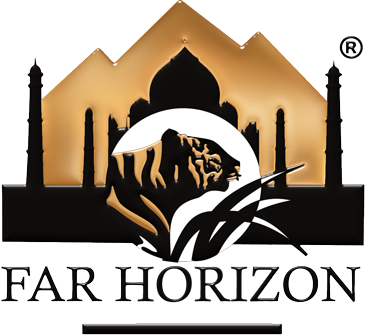Treasure of India with Backwater Cruise (North to South)
more_vert
-
Duration15 Days
-
Region
-
Category
-
Best Time
- September - April
Introduction
Soak in the heavenly bliss amid the charming network of waters as Far Horizon takes you on a special journey through the Kerala Backwaters, a one of its kind experience combined with the luxury on wheels. The experiences of the majesty of Taj, Agra and the wildlife richness of Ranthambore along with the royal city of Jaipur add onto the cultural and heritage aspects of your sojourn.
Tour Highlights
- Travel like a Maharaja on the leading luxury train of India “The Maharaja Express”
- Explore the Serenity of Kerala backwaters while cruising on the Kerala River Cruise
- Village visits and interaction with the local people
- Cooking demonstration and home hosted meal
- Experience Kathakali Dance, Martial Arts and Bronze Art work of Multicultural city “Cochin”
Destinations Covered
Kochi
Queen of the Arabian SeaKochi (formerly Cochin) is a cosmopolitan city in the state of Kerala with a bustling commercial port. Kochi is the financial capital of Kerala and, with a population of more than 2 million, the biggest urban agglomeration in the state. It is one of the major tourist destinations in India.
Kumarakom
The Enchanting BackwatersThe village of Kumarakom is a cluster of little islands on the Vembanad Lake, and is part of the Kuttanad region in Kerala. The bird sanctuary here, which is spread across 14 acres, is a favourite haunt of migratory birds and an ornithologist's paradise. Egrets, Darters, Herons, Teals, Waterfowls, Cuckoo, Wild Duck and migratory birds like the Siberian Stork visit here in flocks and fascinate all visitors.
An enchanting backwater destination, Kumarakom offers visitors many leisure options.
Kavalam
A Green HavenKavalam is a village in Kuttanadu, Kerala state, Alappuzha District. India. It is located on the borders of Alapuzha and Kottayam districts, on the banks of Vembanad Lake. The Pampa river flows through the village to merge into the famed Vembanad Lake. Its natural scenic beauty is legendary and has been used by many filmmakers. Relatively untouched by modernity, Kavalam is a green haven.
Alappuzha
Venice of the EastAlappuzha is the hub of Kerala's backwaters, home to a vast network of waterways, over a thousand houseboats and an important coir industry. Head out towards the backwaters and Alleppey becomes graceful and greenery-fringed, disappearing into a watery world of villages, punted canoes, toddy shops and, of course, houseboats.
Delhi
The City of GloryDelhi is said to be one of the oldest existing cities in the world, along with Jerusalem and Varanasi. It is the Capital Territory of India and a modern-day citadel that's dotted with ancient monuments.
History and Culture
Legend estimates it to be over 5,000 years old. Over the millennia, Delhi is said to have been built and destroyed 11 times. The oldest alleged incarnation of the city shows up in the Indian mythological epic Mahabharata as Indraprastha.
Agra
The Majesty of the TajAgra is the city of the Taj Mahal, in the north Indian state of Uttar Pradesh. Agra has three UNESCO World Heritage sites, the Taj Mahal, Agra Fort in the city and Fatehpur Sikri on the outskirts of Agra. There are also many other buildings and tombs from Agra's days of glory as the capital of the Mughal Empire.
Ranthambore
The Great Wildlife AdventureJaipur
The Pink CityJaipur is the largest city in Rajasthan and was built in the eighteenth century by Sawai Jai Singh as India's first planned city. Jaipur is a major tourist attraction amongst Indian as well as international travellers. Jaipur is often called the Pink City in reference to its distinctly colored buildings, which were originally painted this color to imitate the red sandstone architecture of Mughal cities. The present earthy red color originates from repainting of the buildings undertaken for a visit by the Prince of Wales in 1876.
Detailed Itinerary
- Day 1 Arrive Cochin
- Day 2 Cochin
- Day 3 Cochin / R.V.Vaikundham
- Day 4 Vaikom-Chenganda-Kumarakom
- Day 5 Kumarakom - Kavalam
- Day 6 Kavalam-Kainakari-Pulinkunnu
- Day 7 Pulinkunnu-Nedumudy-Champakkulam-Changankari
- Day 8 Excursion from Changankari
- Day 9 Thottappalli-Karumadi-Kanjippadom
- Day 10 Kanjippadom-Punnamada / Disembark at Alleppey / Deboard & flight to Delhi
- Day 11 Board Maharaja Express - Agra
- Day 12 Maharaja Express - Ranthambore
- Day 13 Maharaja Express – Jaipur
- Day 14 Deboard Maharajas Express in Delhi
- Day 15 Departure
























